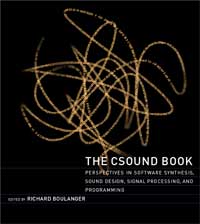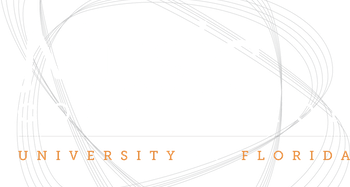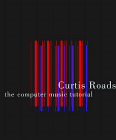MUC4441/6445
Electroacoustic Music Composition/Digital I
Syllabus - Fall 2016
Introduction to direct-digital software synthesis systems through flowcharting, programming, and instrument design focusing on the use of Csound.
Required Texts:
(available online via numerous vendors)
 | Boulanger, Richard Charles, ed. The Csound Book : Perspectives in Software Synthesis, Sound Design, Signal Processing, and Programming.
(MIT Press, 1999).
[amazon.com]
[barnesandnoble.com] |
Optional Texts:
(available online via numerous vendors)
Materials Required:
(6) CD-R blank disks for PROJECTS
(1) 16 GB Flash Drive (for data backup)
Optional Material:
Grading:
20% Tutorials/Reading
20% Research Paper
15% Listening Reports
15% Mid-Term/Written and Practical
30% Final Project
Office: Office 221/Lab 147/Studio 340/Lair 231
Office Phone No.: 273-3176
Office Hours: see schedule
Professor: Dr. James Paul Sain [email]
Graduate Assistant: Luis Damiani [email]
GA Office Hours: TBA
Studio/Lab Assistants: Garrett Hecker [email] & Rob Seaback [email]
Listserv (closed): ufemu-l@lists.ufl.edu
Policies:
1) All listening selections are from the AFA Library Listening Area; please plan your time accordingly. A lack of planning on your part does not necessarily constitute an emergency on the part of the library support staff.
2) Late work is not accepted.
3) We are very fortunate to have a highly skilled graduate assistant (GA) serving this course (among numerous other duties). The GA will have regularly scheduled weekly office hours. Limited time may be available outside these office hours only at their discretion. Please contact the GA well in advance of your needs via email or in person after class (please respect the personal time of our GA). Come prepared with your materials well underway when working with the GA. As the assignments are designed to require you to apply the techniques demonstrated in class, the GA will only review the techniques and concepts outlined in the class lectures. Again, like the library staff, a lack of planning on your part does not constitute an emergency on the part of our GA.
4) Attendance is required at all classes. Should a class be missed, it is the student's responsibility to see that the lecture notes from the missed class are obtained from a classmate and any work assigned is completed by their return (a class list will be supplied to help facilitate this policy). After three (3) class absences your grade will be lowered one grade increment for each absence after three (ie A to A-, or C to C-). Your grade will be lowered one grade increment for each UnBalanced Connection concert missed. Each missed concert or presentation will also result in a reduction in your grade by one increment.
5) The Electroacoustic Music Studio is available for use by each electroacoustic music student; this open use time will be available on a first come, first served basis.. Should it be necessary we can provide a sign-up for secured times. If that is necessary, each studio user has a five minute grace period after which the studio will revert to open use.
6) Sign-in/out is required when using either the lab or studio. You must return the studio to the normal condition after each use or your use privileges will be removed.
7) Plan early for your final project...things have a way of happening at the last minute.
8) The requirements, emphasis, and timing of this course may be changed or adjusted to meet the specific needs of the class as determined by the instructor.
9) All students of The University of Florida are expected to conduct themselves in a reasonable and professional manner at all times as described in the Student Honor Code; please refer to The Code for specifics.
10) UF Software Copyright Policy: All faculty, staff and students of the University of Florida are required and expected to obey the laws and legal agreements governing software use. Failure to do so can lead to monetary damages and/or criminal penalties for the individual violator. Because such violations are also against the University policies and rules, disciplinary action will be taken as appropriate.
11) UF Counseling Services - Resources are available on-campus for students having personal problems or lacking clear career and academic goals which interfere with their academic performance.
These resources include:
1.University Counseling Center, 301 Peabody Hall, 392-1575, personal and career counseling;
2.Student Mental Health, Student Health Care Center, 392-1171, personal counseling;
3.Sexual Assault Recovery Services (SARS), Student Health Care Center, 392-1161, sexual assault counseling;
4.Career Resource Center, Reitz Union, 392-1601, career development assistance and counseling.
12) Students requesting classroom accommodation must first register with the Dean of Students Office in Peabody Hall. The Dean of Students Office will provide documentation to the student who must then provide this documentation to the Instructor when requesting accommodation.
13) My office door is always open; please feel free to drop by to discuss class issues as the need arises.
Grading Scale:
| A | 100-94% |
| A- | 93-90% |
| B+ | 89-87% |
| B | 86-83% |
| B- | 82-80% |
| C+ | 79-77% |
| C | 76-73% |
| C- | 72-70% |
| D+ | 69-67% |
| D | 66-63% |
| D- | 62-60% |
| E | 59-0% |
Course Outline
Week 1 (22 Aug)
- GETTING STARTED: what the heck is a .sco and .orc
Boulanger:
Intro to Sound Design in Csound (pp 5-6)
Orch File and Syntax (pp 7-8)
Sound Design Etude 1 (p 9)
GEN Routines (pp 10-11)
Score Syntax (pp 12-13)
Note Lists and P-Fields (p 14)
Exercises for Etude 1 (p 15)
Dodge: (concepts review)
1. Fundamentals of Computer Music (pp 1-24)
2. Acoustics and Psychoacoustics of Music (pp 25-61)
3. Fundamentals of Digital Audio (pp 62-71)
Week 2 (29 Aug)
- ADDITIVE SYNTHESIS: harmonic and inharmonic partial structures
Boulanger:
Theory: Sound, Signals & Sampling (p 16)
Sound Design Etude 2 (pp 18-20)
Exercises for Etude 2 (p 20-21)
Dodge:
4. Synthesis Fundamentals (pp 72-114)
Week 3 (5 Sept, Labor Day - No Classes; Sept 7)
Boulanger:
Amplitues & Clipping (p 21)
Data Rates (p 22)
Variable Names (p 23)
Theory: Aliasing & Sampling Theory (p 24)
Sound Design Etude 3 (pp 25-28)
Envelopes (p 29-30)
Theory: Unipolar & Bipolar Functions (p 31)
Exercises for Etude 3 (p 32)
Dodge: 2. The Acoustics and Psychoacoustics of Music (pp 25-61)
Declare Research Paper Topic
Week 4 (12 Sept)
- SUBTRACTIVE SYNTHESIS: periodic and aperiodic sources
Boulanger:
Sound Design Etude 4 (p 33)
Self Comment Instrument Design (p 34)
Spectral Fusion (pp 34-37)
Value Converters (p 38)
Exercises for Etude 4 (pp 39-41)
Dodge: 6. Subtractive Synthesis Techniques (pp 169-219)
Listening Report 1
Week 5 (19 Sept)
Boulanger:
Theory: Filter Basics (p 42)
Sound Design Etude 5 (p 42)
Cascade Filter Network (pp 42-45)
Displays (p 45)
Echo-Resonator (pp 46-50)
Dodge: 3. Fundamentals of Digital Audio (pp 62-71)
Week 6 (26 Sept)
- SPEECH SYNTHESIS: vowel production/vocal tract modeling
Boulanger:
Score Statements & Note List Shortcuts (pp 50-55)
Exercises for Etude 5 (pp 55-56)
Global Variables (p 57)
Sound Design Etude 6 (pp 58-62)
Conclusion (pp 62-63)
Dodge: 7.1 Analysis-Based Synthesis Techniques (pp 220-243)
Week 7 (3 Oct)
- DISTORTION SYNTHESIS: FREQUENCY MODULATION
Boulanger: Understanding and Using GENs - Nelson (pp 65-97)
Dodge: 5.1 Synthesis Using Distortion Techniques (pp 115-138)
MID-TERM EXAM: Written (take home)
Week 8 (10 Oct; Friday, Homecoming - No Classes)
Boulanger: FM Synthesis and Morping in Csound - Evans (pp 197-206)
Fri 16 Oct UnBalanced Connection 56, MUB 101 at 7:30 p.m.
Week 9 (17 Oct)
- DISTORTION SYNTHESIS: Waveshaping
Dodge: 5.2 Synthesis Using Distortion Techniques (pp 139-157)
Declare Final Project with written outline
Listening Report 2
Week 10 (24 Oct)
- DELAY, REVERBERATION
Boulanger: Reverb Design - Lyon (pp 467-482)
Dodge: 10.1 Reverberation (pp 289-307)
Week 11 (31 Oct)
- LOCALIZATION & REAL-TIME USEAGE
Dodge: 10.2 Auditory Localization (pp 308-321)
Week 12 (7 Nov; 11 Nov, No Class - Veterans Day)
- GRANULATION SYNTHESIS (WAVELET SYNTHESIS)
Boulanger: Granular Synthesis IN Csound - Lee (pp 261-280)
Dodge: 8. Granular Synthesis (pp 262-276)
Research Paper Due
Week 13 (14 Nov)
- ADDITIONAL CONSIDERATIONS: computer composition, etc.
Boulanger: Convolution - Spjut (pp 507-520)
Dodge: 11. Composition with Computers (pp 341-401)
Week 14 (21 Nov; 23-25 Nov - Thanksgiving - No Classes)
- Individual meetings: Final Project
SoundHack
Listening Report 3
Week 15 (28 Nov)
- Individual meetings: Final Project
Week 16 (5 Dec; Thursday & Friday, Reading Days)
- Review/Presentation of Final Projects
LISTENING REPORTS: A written critique of compositions on each listening list. These typed reports should contain objective prose describing the works on the listening list that demonstrates an understanding of the techniques used to produce the work as well as the aesthetic of the composition.
RESEARCH PAPER: Ten to fifteen (10-15) page report on an approved compositional technique, synthesis or resynthesis technique, signal analysis process, or other related topic; an additional bibliography/discography must be included (not included in the 10-15 page count for the body of the paper). See me for approval. This is worth 15 percent of your final grade!
UNBALANCED CONNECTION CONCERT: All students are required to participate in the UnBalanced Connection concert Friday, 28 Oct 2015 at 7:30p. Students are encouraged to have compositions presentable for performance on this concert. All students are required to set-up, attend, and tear-down for this concert (set-up usually begins the early afternoon of the concert day). The concert will be held in MUB 101. Please clear your schedules early to avoid a conflict.
MID-TERM EXAMINATION: Subjective examination of material and coding exercises.
FINAL PROJECT: Creative work to demonstrate an understanding and application of the principles and aesthetics discussed and experienced during the course of the semester utilizing the software techniques learned in this course. These projects will be retained/archived. Do not hand in your only copy.
SAFETY HINT: Always keep several back-up copies of your work on multiple disks; if you have a personal Macintosh you may wish to keep one copy on your personal hard-drive. Do not use the labs'/studio's hard-drives as personal storage devices. All drives are regularly cleaned of all unauthorized software, files, and documents. Do not reorganize any software on the platforms in the Electroacoustic Music Studio (MUB 340). Please sign in and out each time you use the studio.
HEARING SAFETY: It is very important that the student of electroacoustic music be aware of the listening environment in which they are working. The studio environment can, if used improperly, subject the listeners ears to unhealthy sound pressure levels. For more information and links to web sites about hearing health click here .
- Listening List
Online Manuals (HTML accessable on the FEMS site)
Downloadable Manuals (for print out on your printer)
|



